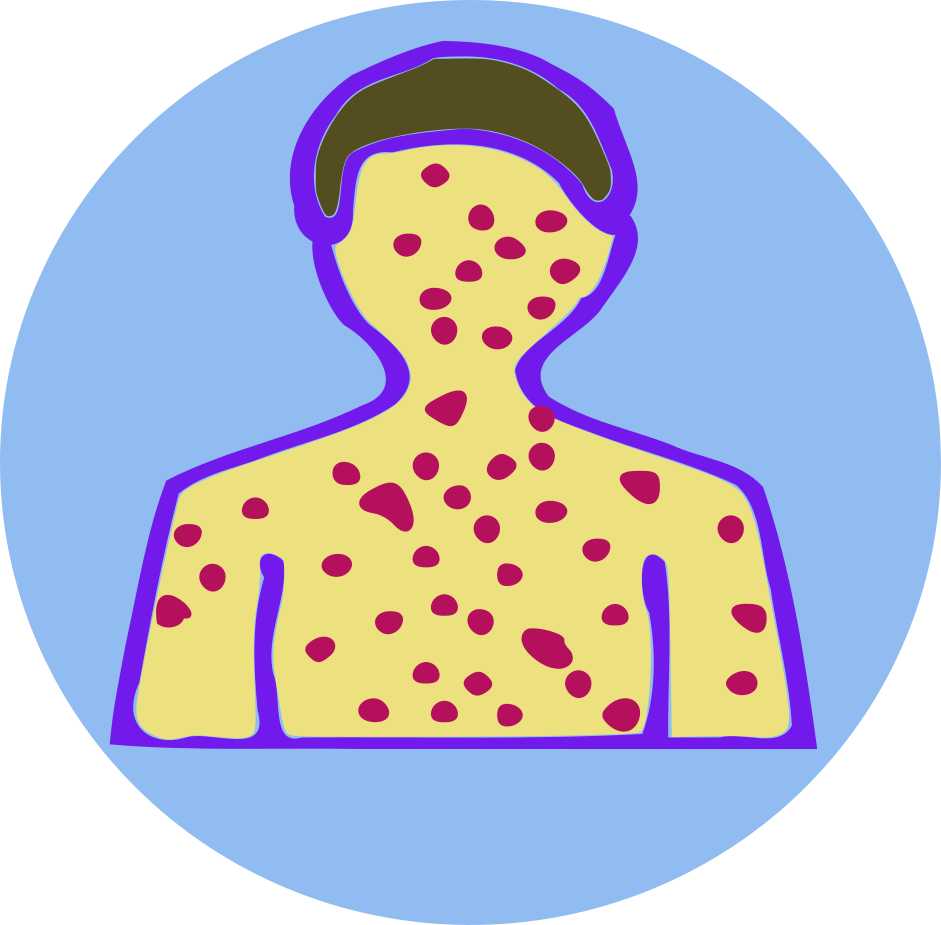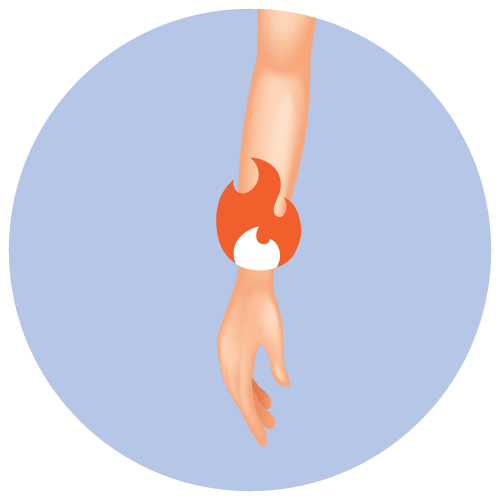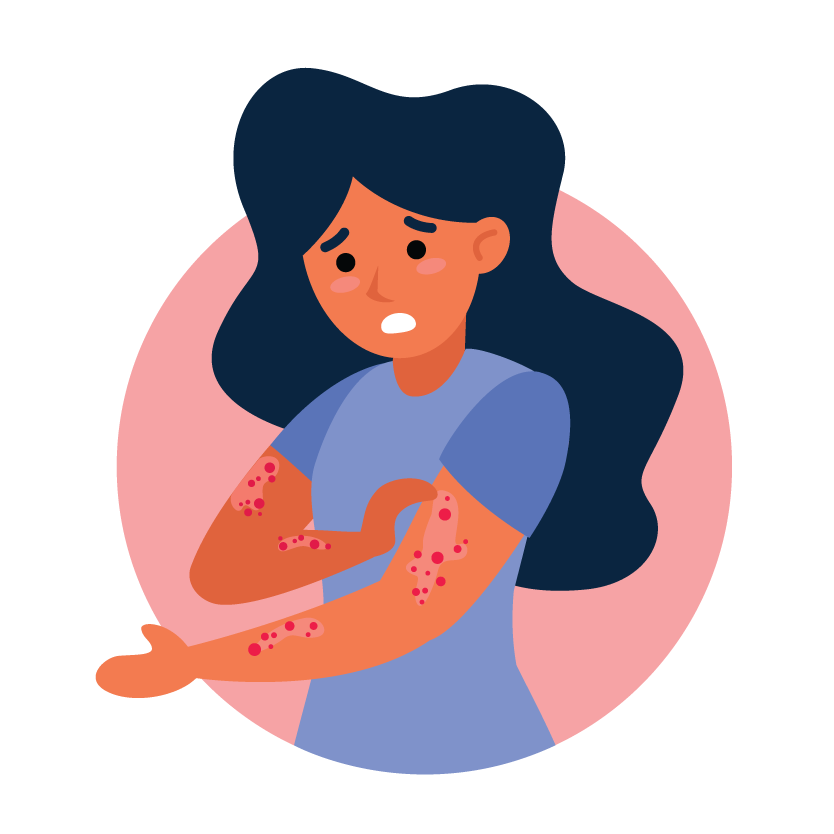| Name | Desonide |
| Classes |
Dermatological/Topical Agent Steroid |
| Diseases |
Inflammatory Disease Irritation Itching Redness Swelling |
Desonide
Desonide is a glucocorticoid that has anti-inflammatory effect. It reduces itching/irritation by downregulating various immune cells and immune activation pathways.
Desonide is a corticosteroid indicated for the topical treatment of mild to moderate atopic dermatitis in patients 3 months of age and older.
- Apply as a thin layer to the affected areas two times daily and rub in gently.
- Therapy should be discontinued when control is achieved.
- If no improvement is seen within 4 weeks, reassessment of diagnosis may be necessary.
- Should not be used with occlusive dressings.
- Treatment beyond 4 consecutive weeks is not recommended.
- For topical use only. Not for oral, ophthalmic, or intravaginal use.
Side effects associated with topical desonide are relatively rare. The following side effects were reported-
- burning
- rash
- pruritus
- Topical corticosteroids can suppress the hypothalamic pituitary adrenal (HPA) axis, cause Cushing's syndrome, and reveal latent diabetes.
- Systemic absorption may necessitate testing for HPA axis suppression.
- If HPA axis suppression develops, modify use.
- Corticosteroids with high potency, use on large areas, prolonged use, or occlusive use may increase systemic absorption.
- Local side effects may include atrophy, striae, irritation, acneiform eruptions, hypopigmentation, and allergic contact dermatitis, and are more likely with occlusive use or stronger corticosteroids.
- When given topical corticosteroids, children may be more susceptible to systemic toxicity.
Contraindication
Contraindicated in patients hypersensitive to any component of desonide.
None known.
None known.
 Bangla
Bangla English
English


